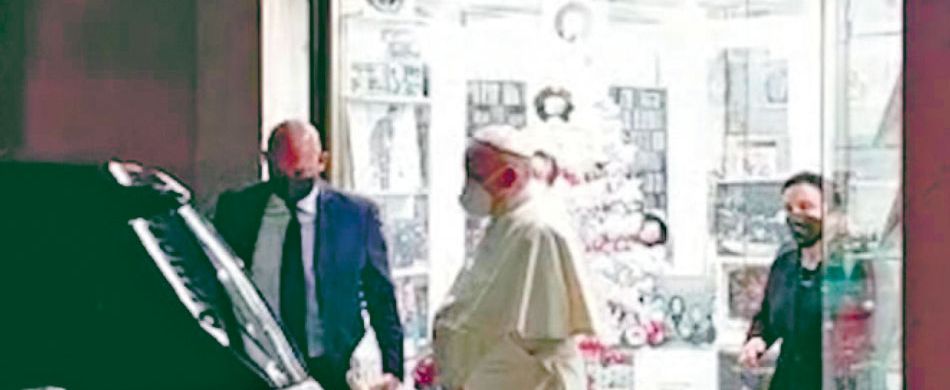DEAR friend, maybe you didn’t know, but Pope Francis is a great music lover. He is known to like Beethoven, Mozart and Bach – and even tango music from his native Argentina. Of course his closest collaborators know this, but I think that even they would never have imagined that one day he would walk out of a record shop in the centre of Rome like any other customer. However, that is exactly what happened. On a late afternoon last January, a Spanish journalist spotted the Pope coming out of Stereosound, one of the oldest record shops in Rome, filmed him with his smartphone and posted the video on the Internet.
According to the Director of the Holy See Press Office, the Pope blessed the premises of the shop which had recently been renovated, and also took some time to look at the latest classical albums. “He is a fan of classical music, opera and great voices,” revealed the owners of the shop which Pope Francis used to regularly visit when he was in Rome on Church business as Cardinal Jorge Mario Bergoglio, archbishop of Buenos Aires.
“What I miss most in the Diocese of Rome is no longer being able to walk the streets as I did in Buenos Aires, walking from one parish to another,” wrote the Pope to the Spanish journalist, author of the scoop, in an almost apologetic tone. This gives us the image of a pope who certainly loves to be among people, but who also values music so much that he wishes to find out about the new releases in CDs.
Music is indeed a powerful form of expression. Not only does it communicate thoughts and ideas, but it also conveys emotions and feelings. Additionally, it has a tremendous persistence. How many times have we been quietly driving the car, washing the dishes, gardening… and a tune starts bubbling its way to the top of our consciousness? It may take a little while, but eventually the entire score, complete with words, and maybe even associated visual imagery, bursts upon the eye and ear of our minds.
In general, song is more easily recalled than any homily, lecture or class – no matter how powerful the speaker may have been. Therefore, it should be no surprise that music – and in particular singing – is such a vital part of worshiping the Lord that St. Augustine used to say that “To sing is to pray twice.”
Of course this is not a mathematical formula, yet singing provides unique aids to mindful prayer. When we pray we form words in our mind and then speak them. However, this is so much second nature to us that it can be done almost without thinking. On the other hand, singing well requires careful formation of the words and the notes. How easily we can mumble a Hail Mary; not so with singing Ave Maria. Furthermore, when we sing we add another step. After thinking and then forming the words, we then hear and enjoy them as they return to our ear in song. In this way we essentially pray twice: one as the orator and once again as the congregation.
I don’t know if St. Augustine meant this when he said that famous sentence, but I like this explanation that I found in a book a few years ago. So, dear friends, next Sunday don’t forget to pick up your song book and sing aloud your praises to the Lord during Mass. You’ll be praying twice!
I would like to conclude this letter with the same wish that St. Paul made to the Ephesians, “Sing psalms and hymns and inspired songs among yourselves, singing and chanting to the Lord in your hearts, always and everywhere giving thanks to God who is our Father in the name of our Lord Jesus Christ” (Eph 5: 19-20). Peace and all good!




